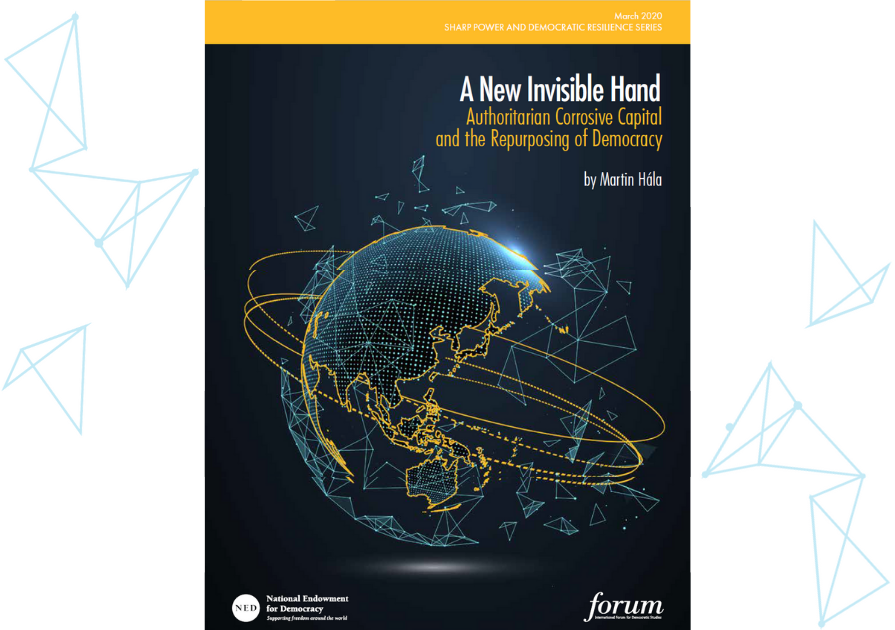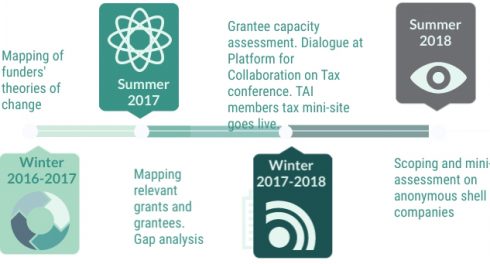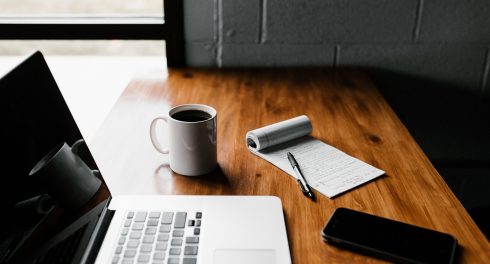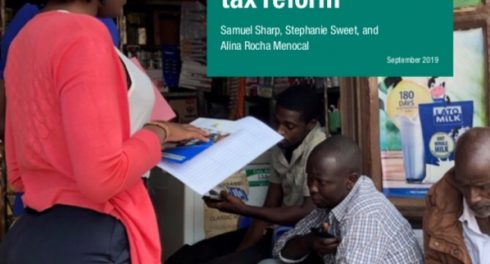Highlights
- Trust deficit to life deficit?
- Manning the truth barricades
- Rights quarantined
- The impossible balance
- Learning in a time of uncertainty
- Business all too usual
- TAI Spotlight: TAI members response to COVID-19 pandemic
Trust deficit to life deficit?

Photo credit: CMO by Adobe
What sets a government in good stead to limit the spread of COVID-19? Perhaps too soon to tell but Francis Fukuyama and Rachel Kleinfeld both argue that it will not be the type of regime that is the key determinant, but rather levels of trust in government and state capability.
Social distancing may be changing our lifestyle but it isn’t dampening calls for transparency over government responses, including this call from over 60 civil society organizations to the European Commission to make pandemic research transparent and accessible. Meanwhile, TAI donor members are impressed by the fast responses among grantees. The Hewlett Foundation team are tracking responses via Twitter while Luminate shares more inspiring examples. Taking a step back, Julie Keseru wonders if we are asking the right questions in regards to the role of transparency during COVID19 pandemic.
Looking more systemically, Alex Jacobs wonders if civil society can use the current political earthquake and solidarity to upgrade capitalism for good. Seems the Financial Times editorial board agree as they make a similar plea for a renewed social contract, while Jodie Thorpe says “we will never achieve economic justice unless we achieve meaningful participation in economic governance and decision-making.”
Manning the truth barricades
The battle to survive COVID19 may be fought as much on the internet as in the hospitals, as doctors worry about misinformation gaining ground as reported in Nigeria. Edda Humprecht argues that differing media environments, including levels of political polarization and economic incentives to produce fake news, create varying levels of susceptibility to disinformation.
So, how does Coronavirus fake news differ from other fake news? ARTICLE 19 has published a policy brief on how states, the media, and social media companies can help to combat misinformation regarding COVID-19. Commitment to transparency, actively tackling misinformation, and promoting authoritative health advice are some of the key recommendations offered. Sarah Kreps and Brendan Nyhan warn social media platforms not to continue to use new tactics designed to limit pandemic harmful content once the crisis is over.
Rights quarantined

Image credit: Council of Europe
Beyond the likes of Facebook, governments are using the pandemic as an excuse to crackdown on press freedom more broadly and delay responses to freedom of information requests. Jeremiah Steinfeld reminds us why press freedom is more important now than ever, yet Kate Musgrave reports that press freedom hits a record low during the coronavirus crisis. In Belarus, an investigative journalist was detained for criticising the government’s response to the coronavirus pandemic. Index on Censorship is tracking media freedom and TAI members are supporting journalists during this period. Without funding, independent professional journalism will simply wither.
What of governments going beyond media clampdown for broader power grabs under the guise of emergency measures? 100Reporters’ UnderCovid project is trying to expose the abuses. Democracy Reporting International reveals how emergency measures taken by European countries undermine the rule of law in Europe. Paul Hockenos analyses the latest developments in Hungary and argues that Orban’s power grab signifies the dawn of a post-democratic Europe if countries continue to spiral into taking increasingly authoritarian emergency measures. With the help of Chinese advisors, Serbia’s government has implemented some of the toughest restrictions in Europe. Looking worldwide, at least 8 countries have seen protests impacted by the coronavirus pandemic. Some of the most significant of these demonstrations are taking place in prisons, according to the Global Protest Tracker.
COVID-19 Civic Freedom Tracker
Essential Resource: COVID-19 Civic Freedom Tracker
The International Center for Not-for-Profit Law, European Center for Not-for-Profit Law and their global network of partners launched a tracker to monitors government responses to the pandemic that affect civic freedoms and human rights, focusing on emergency laws.
The impossible balance
COVID19 could cost us our privacy, but at what price to privacy rights and civil liberties? First, in terms of data to fight the virus, Emily Benson suggests a cautious approach to using personal data in combatting the pandemic as it relates to undermining existing privacy laws but Susan Landau says privacy infringements may be worth as long as it is done with efficacy. For instance, Gian Volpicelli tells how hidden data in some countries have helped to reveal the true impact of the coronavirus that government won’t.
Governments can exploit data tracking needs to set new precedents. The Guardian reveal Saudis are exploiting weakness in SS7 — the global protocol for routing phone calls and text messages — to “track its citizens as they travel around the US.” The EU Commission asked telecoms firms to handover anonymised mobile data but industry executives expressed doubts over how the commission would ensure the data remained anonymized and securely protected. Some industry watchers wonder if this is part of the commission’s game plan to fast track its ambitions to become a world power in data.
The fact that more of us are working purely online also creates threats. Cyber security is now even more of a premium. Given TAI team’s reliance on Zoom, we are having to worry about “Zoombombing” and Arwa Mahdawi asks us to be more vigilant on how our data is used.
Learning in a time of uncertainty
TAI’s Alison Miranda reflects on what it means to be a learning officer amid world upheaval and how learning can help. In similar vein, Janna Rous offers eight ways to adapt your M&E during the pandemic.
These unpredictable times those of us who are natural planners, feel uneasy, to say the least. Paul Schmitz shares his thoughts on what collective impacts, nonprofits and other organizations can do now to manage change. Mervyn King and John Kay, two leading economists, recently published a book sharing their research and insights on decision making in a context of radical uncertainty. We should not forget that throughout history, “humans are successful because we have adapted to an environment that we understand only imperfectly.”
Ravi Gurumurthy is convinced that a crisis brings forth innovation. “When there is no script to follow, there is no choice but to improvise,” he observes. That should and does extend to philanthropy. Foundations are adopting policies to move more money faster, and with fewer restrictions; funders are joining efforts to support nonprofits; and practitioners are proposing simple and low-cost ways for nonprofits and foundations to hamper the crisis and also raise funds if your nonprofit isn’t responding directly to the pandemic. Farhad Ebrahimi ponders why it should take a pandemic to bring out the best in philanthropy and if this could have been done and maintained under normal circumstances.
Turning to a different kind of crisis – this time a “learning crisis” – Florencia Guerzovich, Maria Poli, and Emilie Fokkelma tell us more about the contributions civic engagement and social accountability can make in global education. The Resilient Roots initiative examines common challenges faced when implementing primary constituent accountability
Thomas Aston emphasizes the power of stories of change and asks whose stories are we telling. (Pair with TAI’s recent effort to track the story behind the story.)

Image credit: National Endowment for Democracy
Long Read: A New Invisible Hand: Authoritarian Corrosive Capital and the Repurposing of Democracy
This report explores the issue of corrosive capital—or capital flows from authoritarian regimes that undermine democratic processes and institutions in the receiving countries—and outlines what an interconnected, interdisciplinary response from civil society could look like.
Business all too usual
Transparency International U.S. suggests twenty-five anti-corruption measures to congressional leadership to ensure that government contracts go toward fighting the virus and are not misappropriated by corrupt actors at home or abroad. Jodi Vittori worries that illicit financial flows will be easier with attention diverted to the pandemic response and has some tips on how government can make it difficult for perpetrators.
Rick Rowden tells CNBC Africa on how illicit trade hurting African economies as a new report details of trade-related illicit financial flows in 135 developing countries. Maureen Heydt digs in on how big four accountancy firms and Fintech supervisory bodies become enablers of corruption and money laundering. Transparency International reveals how Swedbank hid information from authorities and continuously failed to identify and record clients’ identities, verify sources of their funds and report suspicious transactions.
Pascal Saint-Amans of the OECD calls for changes in tax systems amid pandemic fallout. The OECD Forum on Tax Administration puts out a global reference document setting out actions that tax administrations are currently taking to support individual taxpayers, businesses, and the wider economy. Rasmus Corlin Christensen explores the consequences for global digital tax negotiations, and the OECD offers a new deadline for those wanting to comment on “Tax reporting by platform operators.”
Joy Aceron and Victoria Maglanque use follow-the-money analysis on the “sin tax” in the Philippines to dissect government preparation and response to COVID-19. Hannah Simon and Michelle Harding explore how economic downturns affect consumption tax revenues.
Finally, the IMF, OECD, UN and World Bank have launched an interactive tax database that offers toolkits, publications, and practical guidance on tax issues, as well as the tax programming of each.
TAI Spotlight: TAI members response to COVID-19 pandemic
Our Members Response to COVID-19 pandemic | Transparency and Accountability Initiative
We have provided a central resource for all public communications from our members on the coronavirus pandemic. Find out what our members are up to and check-in from time to time as we update this resource.
Epidemic preparedness: COVID-19 funding call | DFID
The UK Department for International Development (DFID) through the Joint Initiative on Research in Epidemic Preparedness and Response with Wellcome launched a call to strengthen the evidence base to better prevent and control coronavirus (COVID-19) epidemics and to increase research and response capacity.
Taking the time to adapt | MacArthur Foundation
MacArthur extended the timeline for its 100&Change competition. CEO of Lever for Change, Cecilia Conrad shares the foundation thinking on adapting the 100&Change competition to the changing circumstances caused by the pandemic.
OSF reacts to Viktor Orban’s power grab in Hungary | Open Society Foundation
The Open Society Foundations condemn the vote by the Hungarian parliament awarding Prime Minister Viktor Orban emergency powers to rule by decree indefinitely. This bill, it says, is a blatant power grab by a would-be dictator that will rob Hungarian citizens of their democratic rights.
Time to flip the script on representation | Luminate
With millions of people across the world consuming more television than ever following physical distancing protocols, accurate representation in the media has never been more important. Luminate will support Color Of Change Education Fund with a $1.5M grant to flip the script on criminal justice and how Hollywood represents Black Americans.
14 women challenging how art is defined | Ford Foundation
Using gender as a lens, Ford’s Director of Creativity and Free Expression, Margaret Morton writes on fourteen artists, storytellers, and filmmakers changing society’s perceptions of women and forcing the world to rethink the very definition of the arts.
CALLS
- Job postings at Ford Foundation – Ongoing
Job postings at Luminate – Ongoing
BetterTogether Challenge for innovators – Ongoing
Job postings at Democracy fund – Ongoing - Free Digital Security Training – Ongoing
- Open Road Alliance Charitable Grant and Loan to organizations responding directly to COVID-19 – Ongoing
- Pulitzer Center Coronavirus news collaboration challenge – (Applications will be reviewed on a first-come, rolling basis)
- Call for research proposals: Tax and development in South Asia – Proposal accepted on a rolling basis
- RECONNECT Webinar: “Rule of Law Backsliding in the EU – Recent Developments” – April 8, 2020 (9:00 AM – 10:00 AM EDT)
- Reveal investigative fellowships for US Journalists April 10, 2020
- OECD seeks input on draft model rules for reporting for platform operators with respect to sellers in the sharing and gig economy – April 13, 2020
- Call for proposals – Swashakt: Empowering women through collectives and group-based approaches – April 14, 2020
Kamal Adham Fellowship for Television and Digital Journalism – April 15, 2020 - Call for Applications: WE EMpower UN SDG Challenge 2020 – April 15, 2020
- Cross-border investigative reporting fund April 15, 2020 (There are three application rounds in 2020)
- Global Tech Challenge: Solutions for Women – April 15, 2020
- Freedom of speech through the eyes of a cartoonist in Kyrgyzstan – April 17, 2020
- Centre for Investigative Journalism Conference Grant – April 19, 2020
- Strategic Communications & Campaigns Manager April 21, 2020
- The Boston Globe Spotlight Investigative Journalism Fellowship – April 24, 2020
- Research Officer for quantitative work on Rwanda and Ethiopia at ICTD – April 25, 2020
- Call for Applications: Making a Difference Awards (highlights and promotes how the best of research has made a significant difference to Charities and Not-For-Profits) – April 27, 2020
- Getty Images inclusion scholarship – April 27, 2020
- Co-Impact systems change grants (round three) – April 30, 2020
Request for proposal: Independent Public Interest Journalism – April 30, 2020
Call for suggestions on Humanitarian and Development Data Forum agenda – May 2020 - Allard Prize photography competition – May 1, 2020
- Grants fund investigative journalism – May 4, 2020
- Call for Projects Paris Peace Forum 2020 – May 12, 2020
- Call for applications: Intensive Anti-Corruption Training for Future Leaders – May 20, 2020
- Lead Researcher at ICTD DIGITAX programme – May 24, 2020
- Policy and Engagement Consultant at ICTD DIGITAX programme – May 24, 2020
- Proposal Submission for the 2020 Summer Evaluation Institute – June 7-10, 2020
Marielle Franco Award for Feminist Essays 2020 – June 16, 2020 - Amartya Sen Essay Contest 2020: Illicit financial flows – August 31, 2020
Call for Submissions to SSIR Series: Social Change in an Era of Extreme Polarization – Last Thursday of every month until early 2021
CALENDAR
Please double-check the websites for these events to make sure they are still happening – most likely they are not, though some may now be reconfigured for virtual participation.
- Webinar: “Data Governance in Smart Cities” April 9
- Harambee – Let’s All Pull Together (largest gathering of Black professional in philanthropy) – April 16-18, 2020 (Raleigh, North Carolina, United States of America)
Global Technology Governance Summit – April 21-22, 2020 (San Francisco, United States of America)
Shaping the Future Forum 2020 – April 22 – 23, 2020 (Washington, DC)
Virtual Office Hour – Managing Change in (Rapidly) Changing Times (Every Thursday at 2pm ET through April 23) - British Expertise International Awards 2020 – April 23, 2020 (Kensington, United Kingdom)
- 3ie London Evidence Week Conference 2020 – April 23, 2020 (London, UK)
Personal Democracy Forum CEE 2020 – April 23-25, 2020 (Gdansk, Poland)
2020 International Symposium on Online Journalism (ISOJ) – April 24-25, 2020 (Austin, United States of America)
Dart Center webinar series on COVID-19 reporting (Running till 30 April) - Global Digital Development Forum May 6, 2020 6AM-10P GMT
- Frontiers of Social Innovation: People, Power & Resources: The Redistribution Wave – May 12-14, 2020 (Stanford University, California, USA)
2020 Media Impact Forum (funder-only gathering) – June 2, 2020 (New York, United States of America)
Transparency International: 19th International Anti-Corruption Conference – June 2 – 5, 2020 (Seoul, South Korea)
Human Rights Litigation Summer School at Berlin, Germany – June 8-12, 2020
Women and Girls Africa Summit – June 9-12, 2020 (Durban, South Africa)
RightsCon 2020 – June 9-12, 2020 (San Jose, Costa Rica)
2020 Neighborhood Funders Group National Convening (philanthropy support to grassroots power building) – June 29 – July 1, 2020 (Washington, DC) - WE EMpower UN SDG Challenge 2020 – September 18 – 27, 2020 (New York City, United States of America)
- The 2020 Journalism Funders Gathering (funder-only gathering) – October 6-7, 2020 (Philadelphia, United States of America)
Humanitarian and Development Data Forum – November 2-4, 2020 (Chambery, France)
International Open Data Conference –November 18-20, 2020 (Nairobi, Kenya)


